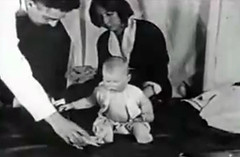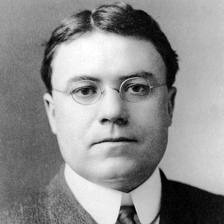| 7608900166 | ecology | study of the distribution and abundance of organisms and their interactions with other organisms and with their physical environment | | 0 |
| 7608900167 | population | group of individuals of the same species living in the same area |  | 1 |
| 7608900168 | community | group of populations of different species living in the same area |  | 2 |
| 7608900169 | ecosystem | interrelationships between organisms in a community and their physical environment |  | 3 |
| 7608900170 | biosphere | composed of all the regions of the earth that contain living things (hydrosphere, geosphere, and atmosphere) |  | 4 |
| 7608900171 | habitat | type of place where an organism usually lives; descriptions typically include the organisms and the physical and chemical characteristics of the environment |  | 5 |
| 7608900172 | niche | all biotic and abiotic resources in the environment used by an organism | | 6 |
| 7608900173 | biotic | living |  | 7 |
| 7608900174 | abiotic | nonliving |  | 8 |
| 7608900175 | climate | long-term prevailing weather conditions in a given area; major components include temperature, precipitation, sunlight, and wind |  | 9 |
| 7608900176 | macroclimate | global, regional, or local climate
example: changing angle of earth with respect to the sun, bodies of water, mountains that exert long-term effects |  | 10 |
| 7608900177 | microclimate | fine-scale variations, like sunlight and temperature under a log | | 11 |
| 7608900178 | biome | large region of the earth whose distribution depends on the amount of precipitation and temperature in an area; characterized by dominant vegetation and animal life |  | 12 |
| 7608900179 | major biomes of the world | tropical rainforest, temperate grasslands, conifer forest (taiga), desert, temperate deciduous forest, tropical seasonal (dry) forest, tundra, savanna, chaparral, and aquatic biomes | | 13 |
| 7608900180 | tropical rainforest | abundant rainfall, stable temperature, high humidity
most biodiversity of any biome |  | 14 |
| 7608900181 | desert | little to no rainfall, greatly varying temperatures, no humidity
plants are drought-resistant and animals are typically active only at night |  | 15 |
| 7608900182 | temperate grasslands | covers huge areas in temperate and tropical regions of the world
low total annual rainfall, uneven seasonal rainfall, occasional fires
grazing and burrowing mammals; soil is rich in nutrients and is great for agriculture |  | 16 |
| 7608900183 | temperate deciduous forest | trees drop their leaves in winter
vertical stratification of plants and animals
soil is rich due to decomposition |  | 17 |
| 7608900184 | conifer forest/taiga | dominated by conifer forests
fresh water lakes and ponds
very cold winters, heavy snowfall
largest terrestrial biome
large mammals
flying insects and birds in summer |  | 18 |
| 7608900185 | tundra | characterized by permafrost
"frozen desert"
gently rolling plains with many lakes, ponds, and bogs
insects are abundant
large to medium mammals |  | 19 |
| 7608900186 | savanna | grasses and some trees
dominant herbivores include insects
fire is a dominant abiotic factor
plant growth increases during rainy season, but low otherwise |  | 20 |
| 7608900187 | chaparral | dominated by dense, spiny, evergreen shrubs
coastal areas with mild rainy winters and long, hot, dry summers
plants are adapted to fires |  | 21 |
| 7608900188 | aquatic biomes include... | freshwater, estuaries, marine | | 22 |
| 7608900189 | primary way to distinguish aquatic biomes | salinity | | 23 |
| 7608900190 | vertical stratification in aquatic biomes | photic zone: enough light for photosynthesis
aphotic zone: very little light
benthic zone: bottom of biome with sand, detritus, and inorganic matter |  | 24 |
| 7608900191 | thermocline | narrow layers of fast temperature change that separate a warm upper layer of water and cold deeper waters |  | 25 |
| 7608900192 | littoral zone | in fresh, standing bodies of water, it is the well-lit shallow water near the shore that contains rooted and floating aquatic plants |  | 26 |
| 7608900193 | limnetic zone | in fresh, standing bodies of water, it is the well-lit open surface waters farther from shore that are occupied by phytoplankton |  | 27 |
| 7608900194 | oligotrophic lakes | deep lakes that are nutrient-poor, oxygen-rich, and contain sparse phytoplankton | | 28 |
| 7608900195 | eutrophic lakes | shallower, higher-nutrient content, lower oxygen content, high concentration of phytoplankton | | 29 |
| 7608900196 | primary way to characterize moving bodies of water | current | | 30 |
| 7608900197 | marine biome | largest and most stable biome
temperature varies little because of water's high heat capacity |  | 31 |
| 7608900198 | marine biome zones | intertidal zone: land meets water, as in tide pools
neritic zone: beyond intertidal zone; shallower water over continental shelves
pelagic zone: vast realm of open blue water
coral reef: biome created by corals, varying in shape and support the growth of other organisms |  | 32 |
| 7608900199 | population ecology | study of the growth, abundance, and distribution of populations | | 33 |
| 7608900200 | population growth is described by... | biotic potential, carrying capacity, and limiting factors | | 34 |
| 7608900201 | population size | symbolically represented by N
it is the total number of individuals in the population | | 35 |
| 7608900202 | population density | total number of individuals per area or volume occupied | | 36 |
| 7608900203 | population dispersion | describes how individuals in a population are distributed | | 37 |
| 7608900204 | clumped dispersion | most common pattern, like humans in cities or schools of fish |  | 38 |
| 7608900205 | uniform dispersion | like trees in an orchard, or plants with toxins |  | 39 |
| 7608900206 | random dispersion | like trees in a forest; occurs because of special attractions or repulsions |  | 40 |
| 7608900207 | age structure | describes the abundance of individuals of each age | | 41 |
| 7608900208 | survivorship curves | describe how mortality of individuals in a species varies during their lifetimes | | 42 |
| 7608900209 | type I survivorship curve (K- strategist) | describe a species in which most individuals survive to middle age; after that age, mortality is high.
example: humans |  | 43 |
| 7608900210 | type II survivorship curve (c- strategist) | describe organisms in which the length of survivorship is random, that is, the likelihood of death is the same at any age
example: rodents, invertebrates |  | 44 |
| 7608900211 | type III survivorship curve (r-strategist) | describe species in which most individuals die young, with only a relative few surviving to reproductive age and beyond
example: oysters, species with free-swimming larvae |  | 45 |
| 7608900212 | biotic potential | maximum growth rate of a population under ideal conditions with unlimited resources and without any growth restrictions | | 46 |
| 7608900213 | factors that contribute to biotic potential | age at reproductive maturity, clutch size, frequency of reproduction, reproductive lifetime, survivorship of offspring to reproductive maturity | | 47 |
| 7608900214 | carrying capacity | maximum number of individuals of a population that can be sustained by a particular habitat |  | 48 |
| 7608900215 | limiting factors | elements that prevent a population from attaining its biotic potential | | 49 |
| 7608900216 | types of limiting factors | density-dependent factors and density-independent factors | | 50 |
| 7608900217 | density-dependent factors | limiting effect becomes more intense as the population density increases
examples: parasites and disease, competition, toxic effect of waste products, predation, stress |  | 51 |
| 7608900218 | density-independent factors | occur independently of the density of a population
examples: natural disasters and climate extremes |  | 52 |
| 7608900219 | r-strategist
(or r-selected species) | rapid, exponential growth
quickly invade a habitat, quickly reproduce, then die
offspring are small, quickly maturing, and require little to no parental care |  | 53 |
| 7608900220 | k-strategist
(or k-selected species) | slower, logistic growth
size of mature population remains relatively constant
small number of large offspring
extensive parental care
reproduction repeats throughout lifetime |  | 54 |
| 7608900221 | exponential growth | occurs when reproductive rate is greater than zero; forms a J-shaped curve on a graph |  | 55 |
| 7608900222 | logistic growth | occurs when limiting factors restrict the size of a population to the carrying capacity of the habitat; forms an S-shaped curve on a graph |  | 56 |
| 7608900223 | life history | describes an organism's strategy for maximum fitness | | 57 |
| 7608900224 | reproductive success | measure of fitness - how well an organism survives and reproduces |  | 58 |
| 7608900225 | reproductive success depends on four variables | age of reproductive maturity
frequency of reproduction
number of offspring per reproductive event
how long the organism lives |  | 59 |
| 7608900226 | community ecology | concerned with the interaction of different populations | | 60 |
| 7608900227 | interspecific competition | competition between two different species via...
- competitive exclusion principle (Gause's principle)
- resource partitioning
- realized niche
- character displacement (niche shift) |  | 61 |
| 7608900228 | Competitive Exclusion (Gause's principle) | when two species compete for exactly the same resources, or occupy the same niche, one is likely to be more successful |  | 62 |
| 7608900229 | resource partitioning | some species coexist in spite of apparent competition for the same resources. they actually occupy slightly different niches. |  | 63 |
| 7608900230 | fundamental niche | niche that an organism occupies in the absence of competition |  | 64 |
| 7608900231 | realized niche | when competitors are present, one or both species may be able to coexist by occupying realized niches. here, any niche overlap is absent. they do not compete for the same resources. |  | 65 |
| 7608900232 | character displacement | niche shift
certain characteristics may enable individuals to obtain resources in their partitions more successfully. this reduces competition and leads to a divergence of features. | | 66 |
| 7608900233 | predation | predator totally or partly consumes a plant or other animal |  | 67 |
| 7608900234 | true predator | kills and eats other animals |  | 68 |
| 7608900235 | parasite | spends most or all of its live living on or in a host; obtains nourishment by feeding on host tissues | | 69 |
| 7608900236 | parasitoid | insect that lays eggs on a host, usually an insect or spider, and after hatching the larvae consume the host |  | 70 |
| 7608900237 | herbivore | animal that eats plants; some act like predators and totally consume the organism whereas others may only eat a part of the plant |  | 71 |
| 7608900238 | symbiosis | two species that live together in close contact during a portion or all of their lives |  | 72 |
| 7608900239 | types of symbiotic relationships | mutualism
commensalism
parasitism |  | 73 |
| 7608900240 | mutualism | both species benefit |  | 74 |
| 7608900241 | commensalism | one species benefits while the second is neither helped nor harmed |  | 75 |
| 7608900242 | parasitism | parasite benefits while the host is harmed |  | 76 |
| 7608900243 | coevolution | evolution of one species in response to new adaptations that appear in another species - evolutionary arms race |  | 77 |
| 7608900244 | secondary compounds | toxic chemicals produced in plants that discourage would-be herbivores | | 78 |
| 7608900245 | cryptic coloration | camouflage; any color, pattern, shape, or behavior that enables an animal to blend in with its surroundings |  | 79 |
| 7608900246 | aposematic coloration | warning coloration; conspicuous pattern or coloration of animals that warns predators that they sting, bite, taste bad, or are otherwise to be avoided |  | 80 |
| 7608900247 | mimicry | two or more species resemble one another in appearance |  | 81 |
| 7608900248 | mullerian mimicry | several animals, all with some special defense mechanism, share the same or similar coloration |  | 82 |
| 7608900249 | batesian mimicry | an animal without any special defense mechanism mimics the coloration of an animal that does possess a defense |  | 83 |
| 7608900250 | ecological succession | change in the composition of species over time; one community is gradually and predictably replaced by another community |  | 84 |
| 7608900251 | climax community | final successional stage of constant species composition; persists relatively unchanged until destroyed by a catastrophic event, like fire |  | 85 |
| 7608900252 | in succession, resident species may alter... | substrate texture, soil pH, soil water potential, light, and crowding | | 86 |
| 7608900253 | pioneer species | species that are the first to colonize a newly exposed habitat; work to break down rock into smaller rock, then into sand, and finally into soil as succession progresses |  | 87 |
| 7608900254 | primary succession | occurs where no soil was previously present; begins on rock. pioneer species and other plants break down rock into pebbles, then sand, then soil. as organisms die and decompose, it nourishes the soil allowing for more and larger organisms to grow or live in that area | | 88 |
| 7608900255 | secondary succession | occurs as primary succession, except soil is already present | | 89 |
| 7608900256 | food chain | linear flow chart of who eats whom
example: grass >>> zebra >>> lion >>> vulture |  | 90 |
| 7608900257 | food web | expanded, more complete version of a food chain that shows all major plants in the ecosystem, various animals that eat them, and the animals that eat the animals |  | 91 |
| 7608900258 | autotrophs | obtain energy from light or inorganic material |  | 92 |
| 7608900259 | heterotrophs | consumer other organisms for organic material and/or a source of energy |  | 93 |
| 7608900260 | ecological pyramids | show relationships between trophic levels |  | 94 |
| 7608900261 | trophic level | an organism's place in a food chain or food web | | 95 |
| 7608900262 | primary producers | autotrophs that perform photosynthesis |  | 96 |
| 7608900263 | primary consumers | herbivores, heterotrophs that eat primary producers |  | 97 |
| 7608900264 | secondary consumers | carnivores/omnivores, heterotrophs that eat primary consumers |  | 98 |
| 7608900265 | tertiary consumers | carnivores/omnivores, heterotrophs that eat secondary consumers |  | 99 |
| 7608900266 | quaternary consumers | carnivores/omnivores, heterotrophs that eat tertiary consumers |  | 100 |
| 7608900267 | detritivores | heterotrophs that obtain their energy by consuming dead plants and animals (detritus) |  | 101 |
| 7608900268 | why will you typically not see more than five levels in a food chain, pyramid, or web? | only 10% of the energy at one trophic level is available for the next trophic level. 90% of the energy is used, stored, or lost. there's not enough energy in any ecosystem to support more than 5 levels. this is called ecological efficiency. | | 102 |
| 7608900269 | primary productivity | amount of organic matter produced through photosynthetic activity per unit of time | | 103 |
| 7608900270 | dominant species | most abundant species or species that contributes the greatest biomass to a community |  | 104 |
| 7608900271 | keystone species | one that has a strong influence on the health of a community or ecosystem; removal of a keystone species results in dramatic changes in the makeup of species that comprise other trophic levels |  | 105 |
| 7608900272 | invasive species | introduced species that proliferates and displaces native species because it is a better competitor or because its natural predators or pathogens are absent |  | 106 |
| 7608900273 | bottom-up model of trophic interactions | describes how changes in the structure of trophic levels are regulated by changes in the bottom level (plants) | | 107 |
| 7608900274 | top-down model of trophic interactions | changes in the structure of trophic levels are regulated by changes in the top trophic level | | 108 |
| 7608900275 | biodiversity | function of the number of species, niches, and trophic levels in the ecosystem and the complexity of its food web | | 109 |
| 7608900276 | factors that influence biodiversity | climate, latitude, habitat size and diversity, and elevation | | 110 |
| 7608900277 | biogeochemical cycles | describe the flow of essential elements from the environment to living things and back; elements are stored in reservoirs and assimilated into organisms as well as released back into the environment | | 111 |
| 7608900278 | hydrologic cycle - reservoirs | oceans, air (water vapor), ground water, glaciers | | 112 |
| 7608900279 | hydrologic cycle - assimilation | plants absorb water from soil, animals drink water or eat other organisms | | 113 |
| 7608900280 | hydrologic cycle - release | plants transpire, animals and plants decompose | | 114 |
| 7608900281 | carbon cycle - reservoirs | atmosphere, bodies of water, fossil fuels, peat, durable organic material | | 115 |
| 7608900282 | carbon cycle - assimilation | photosynthesis, consumption | | 116 |
| 7608900283 | carbon cycle - release | respiration, decomposition, burning | | 117 |
| 7608900284 | nitrogen cycle - reservoirs | atmosphere, soil | | 118 |
| 7608900285 | nitrogen cycle - assimilation | absorption, consumption, nitrogen fixation, nitrification | | 119 |
| 7608900286 | nitrogen cycle - release | denitrifying bacteria convert ammonia into atmospheric nitrogen, detritivorous bacteria convert organic compounds into ammonia, and animals excrete ammonia, urea, or uric acid | | 120 |
| 7608900287 | phosphorus cycle - reservoirs | rock and ocean sediments | | 121 |
| 7608900288 | phosphorus cycle - assimilation | plants absorb from soils, animals eat plants or other animals | | 122 |
| 7608900289 | phosphorus cycle - release | decomposition, excretion | | 123 |
| 7608900290 | humans damage the biosphere by... | exponential population growth
habitat destruction
pollution |  | 124 |
| 7608900291 | most destructive consequences of human activity include... | global climate change, deforestation, acid rain, reduction in species diversity, ozone depletion, desertification, and pollution |  | 125 |
| 7608900292 | global climate change | Burning of fossil fuels releases greenhouse gases such as carbon dioxide into the atmosphere. These greenhouse gases trap infrared radiation, raising the temperature of the earth's atmosphere and resulting in large scale climate change. |  | 126 |
| 7608900293 | acid rain | burning of fossil fuels like coal and other industrial processes release pollutants in the air, which react with water vapor to produce sulfuric acid and nitric acid, which rains down on us | | 127 |
| 7608900294 | desertification | overgrazing of grasslands that border deserts transform those grasslands into deserts; agricultural output decreases and habitats available to native species are lost |  | 128 |
| 7608900295 | deforestation | clear-cutting of forests causes erosion, flooding, and changes in weather patterns; occurs most often in the tropical rainforest, where most of our carbon fixation occurs |  | 129 |























































































































































































































